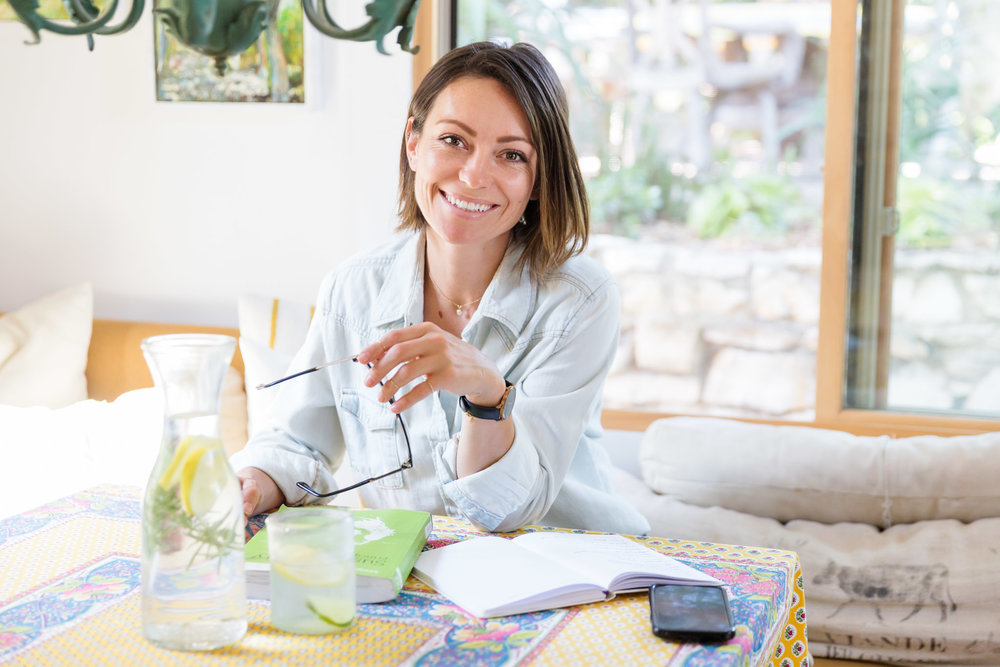By: Danielle Levy

Go outside (with a mask) and look down; what do you see? Probably trash made of plastic. As most millennials are very aware of, plastic waste is a huge issue facing today’s generation. While banning plastic bags, recycling and avoiding unnecessary plastic are a step in the right direction, zero-waste and refillable products are the way of the future. Many stores that buy products in bulk and allow customers to fill up their own containers have been popping up around LA, but the San Fernando Valley has been slow to secure one of these stores.
Insert Prostainable: A zero-waste shop in Woodland Hills with bath and cleaning product refills, kitchen compostables, and bathroom reusables. The walls are lined with a plethora of bamboo utensils, reusable beeswax wraps, and compostable dish-scrubbers while the center houses enormous glass jugs filled with locally sourced shampoos, conditioners, soaps, and laundry and cleaning supplies. You can even buy soaps, candles and tiki torches made either by local, small businesses or the shop owner herself.

The owner, Laura Yochum started the business in 2019 as a small booth at local farmers markets. A true entrepreneur, she started out by selling only a few varieties of bathroom and cleaning solution refills. The full store opened June of this year and the selection has expanded tenfold. The product availability is always different, to reflect local supply and seasonality, and can include anything from locally sold vegan leather bags and compostable bowls made from coconut shells, to pure steel pruning shears and reusable menstrual cups. The shop truly has every innovation to live a more sustainable life.
The focus on social impact truly makes this shop unique. Laura prefers to source products from local businesses as often as she can and emphasizes supporting women and black-owned businesses. In a time where big-buck stores like Walmart and Amazon dominate all markets, it’s refreshing to see someone stress the importance of supporting the local community. In addition, Prostainable has teamed up with a local non-dairy company to donate meals to needy families in the area. Laura says “It is going to take many of us thinking holistically before we make purchases, but we can change how goods are manufactured for us and encourage a circular economy. We can make sustainability accessible and I am going to help make that happen.” Prostainable is extremely innovative in that it is a profitable business combining a low impact lifestyle with improvements to the community.
Not only does the shop help you live more sustainably, but the @Prostainable Instagram can help you learn more about all aspects of sustainability. The profile has tons of content on composting, gardening, and reducing waste and is updated weekly, if not daily. Check out their website, prostainable.com, for more tips on reducing your impact in the laundry and kitchen or sign up for their newsletter to receive weekly tips.
Prostainable is truly the future of entrepreneurship: a business that puts the Earth first while also spreading the word of how to take care of it. The store provides access to refill shops in an area previously lacking, while also supporting local and black-owned businesses in a market trying to push them out. The shop is not only a pioneer in the valley’s refill and sustainable product market, but also on the forefront of education and outreach. Make a visit, and it could change your whole perception on sustainability and how businesses should be run (for the better).
Q&A with Laura:
- Where do you see Prostainable in the future?
Once we can successfully say we made it through 2020, I envision Prostainable becoming more accessible to the San Fernando Valley and also focusing on creating more ethically sourced and low-waste products.
- Any advice for future sustainable entrepreneurs?
Nature provides every answer that we need, look to it when designing and creating because it is nature that is sustainable, humans are the problem. You are already many steps ahead of most people (and companies) because you desire to build a business around sustainability versus trying to rebuild a company and change costly processes to become more sustainable. New technology and advancements are happening every day, be prepared to change and grow. Be aware of greenwashing. Also, read this book:CCradle to Cradle by William McDonough.
- How do you deal with the assumption that sustainable business is “not profitable for stakeholders in the long term”?
Stakeholders said the same about “green” and “eco-friendly”. The sustainable goods industry is projected to be worth $150 billion dollars by 2021 and it only started taking off 6-7 years ago. Over half of the shoppers in the U.S. have said that they will change their habits and choices if it meant it was better for the planet. I know that people around my age and especially younger than me care a lot about the products that we bring into our homes and the impact they have on the planet. So I would first seek stakeholders that align with my values in hopes to cut the negotiating time in half. There is profit to be made that doesn’t destroy the planet and it’s apparent that people are consistently proving that they will make the change.
- What simple and easy changes can our students make today to start living a more sustainable lifestyle?
- Repair and Reuse before you buy
- Sustainably made bar soap over liquid soap (unless you can refill your liquid)
- Bring a reusable cup, utensils, and a cloth napkin wherever you go
- Walk & bike more
- Buy local food (Farmer’s Markets or at the Grocery)
- Don’t waste (electricity or food)
- Talk about it with family and friends
Check out our social media accounts:
